Prime Minister Malcolm Turnbull rushes to fix bureaucratic tangle that could set terrorists free
UP to 20 of our most notorious convicted terrorists could soon walk free from prison without even basic conditions put on their release to protect the community and the wannabe jihadis could slip through federal laws meant to keep offenders at bay. Here is the list of Australia’s convicted terrorists.
NSW
Don't miss out on the headlines from NSW. Followed categories will be added to My News.
UP to 20 of our most notorious convicted terrorists could soon walk free from prison without even basic conditions put on their release to protect the community like internet bans or curfews.
The Daily Telegraph can reveal a bureaucratic mess means wannabe jihadis like the spiritual leader of Australia’s biggest terror plot Abdul Nacer Benbrika could slip through federal laws meant to keep offenders at bay.
NSW courts have the power to keep convicted terrorists behind bars indefinitely but they have to prove to a “high degree of probability” that the person would commit another serious crime.
If they fail, the same court doesn’t have the power to enforce strict post-release conditions. This power rests with the Federal Court and would involve mounting an entirely new and long court case.
And because the offenders have served a full-term there usual parole sanctions do not apply.
It’s understood Attorney-General Christian Porter is in a race against time to streamline the laws before the end of the year because of fears it will not be in place before the first high risk terror offender becomes eligible for release next year.
The Government has refused to reveal the identity of the criminal or the other 19 currently behind bars.
But The Daily Telegraph understands convicted jihadis who are coming up for release include Benbrika who was last year denied parole but whose full 15 year sentence expires in 2020.
LATEST NEWS
Terror cell buried stockpile of weapons near airport
Inside a counter-terrorism operation
The terror plot Sydney never knew about
Other terrorists convicted through Operation Pendennis for their role in plotting attacks against the 2005 AFL grand final and Sydney’s Lucas Heights nuclear reactor including Omar Baladjam and Mohamed Ali Elomar who have separately launched appeals recently were also likely to be on the list.
It would also affect Sydney architect Faheem Lodhi, the first person in Australia convicted of planning a terror attack, who in 2006 was jailed for planning to bomb the national electricity grid and the Holsworthy Barracks. He is eligible for parole next year while his sentence ends in 2024.
In a submission to a review of the laws, the Australian Human Rights Commission warned judges would be placed in the “invidious position” of having to keep someone behind bars or “dismissing an application and therefore making no order to address the risk an individual may pose”.

Law Council of Australia president Morry Bailes said equipping the courts with a further option was essential to help keep the community safe.
“The Law Council supports the NSW regimen which gives the court a broad discretion to vary or revoke an order,” he said.
Sydney silk James Renwick, who the Government has tasked with monitoring its national security legislation, recommended tough restrictions on released offenders should last three years.
Dr Renwick told a parliamentary committee that this issue was of “particular importance” because of the 20 offenders approaching the end of their sentences in coming years.
Acting Attorney-General Greg Hunt said it was “not appropriate” to comment on individual cases of criminals currently behind bars.
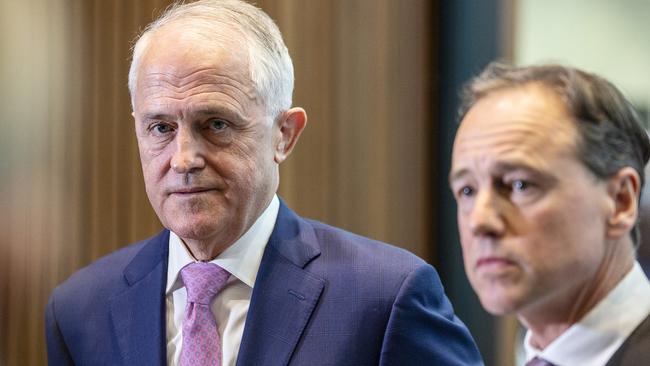
He said the Government already had legislation in place to take preventive measures to address the threat posed by individuals who may commit a terrorist act.
“The Government intends to introduce legislation to create an Extended Supervision Order scheme by the end of the year,” he said.
“The purpose of the ESO scheme … would be to streamline the continuing detention order and the control order regimes led consideration and close collaboration between the Commonwealth, operational agencies, and state and territory jurisdictions.”
Opposition national security spokesman Mark Dreyfus, who is also on the high-level Joint Committee on Intelligence and Security, said was critical of the Government’s inaction in fixing the flaw.
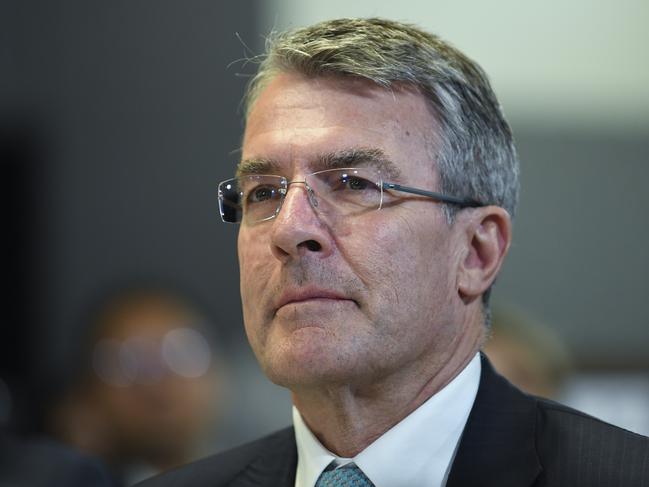
He said Labor supported establishing an ESO scheme.
“The Government has so far refused to say why it has delayed legislating this measure,” he said.
“It could have implemented this reform at the same time it introduced legislation for other recommendations contained in the PJCIS report in May this year.”
The Aussie terrorists who may be set free:
Khaled Cheikho, Moustafa Cheikho, Mohamed Ali Elomar, Abdul Rakib Hasan, and Mohammed Omar Jamal were found guilty of planning a terrorist attack in Sydney between July 2004 and November 2005.
Benbrika: Senator George Brandis refused Benbrika’s parole application in 2017 meaning he would spend another three years behind bars because he was deemed to be a threat to the community.
Mohamed Ali Elomar: Been behind bars in Goulburn’s Supermax prison since 2005 after found to be part of the terror plot that stockpiled bomb-making chemicals and weapons.
Moustafa Cheikho: Found guilty of planning a terrorist attack in Sydney between July 2004 and November 2005.
Mohammed Omar Jamal: Found guilty of planning a terrorist attack in Sydney between July 2004 and November 2005.
Abdul Rakib Hasan: Found guilty of planning a terrorist attack in Sydney between July 2004 and November 2005.
